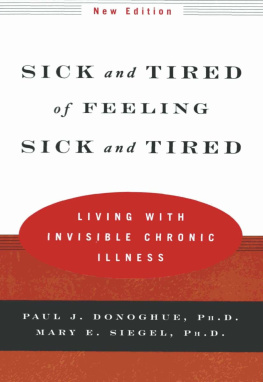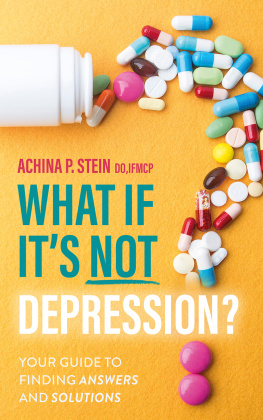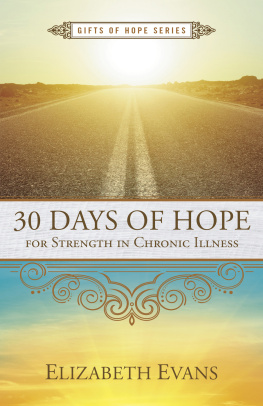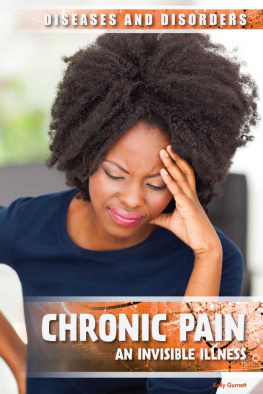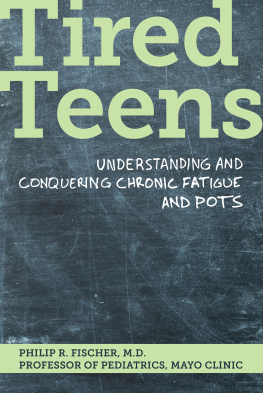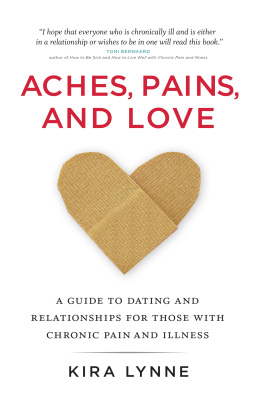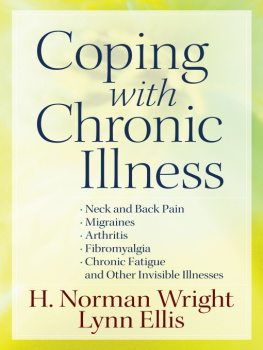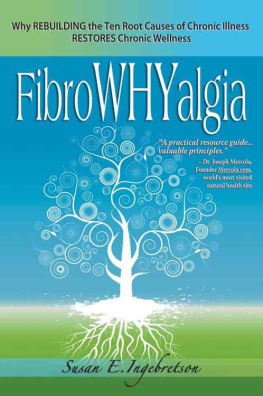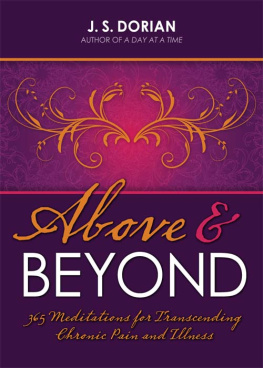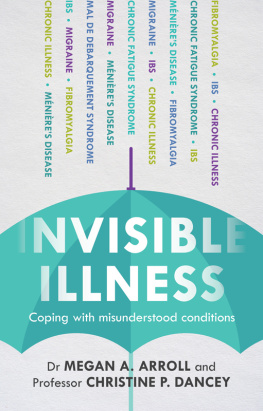P AUL J. D ONOGHUE , Ph.D.
M ARY E. S IEGEL , Ph.D.
Let It Be Words and Music by John Lennon and Paul McCartney. Copyright 1970 by Northern Songs. All rights controlled and administered by MCA Music Publishing, A Division of MCA Inc., New York. NY 10019 under license from Northern Songs.
Used by permission.
All rights reserved.
Copyright 2000, 1992 by Paul J. Donoghue and Mary E. Siegel
Donoghue, Paul J.
Sick and tired of feeling sick and tired: living with invisible chronic illness / Paul J. Donoghue. Mary E. Siegel.
p. cm.
Includes index.
1. Chronic diseasesPsychological aspects. I. Siegel, Mary E. II. Title.
W.W.Norton & Company, Inc.
500 Fifth Avenue, New York. N.Y. 10110
www.wwnorton.com
W.W.Norton & Company Ltd.
Castle House, 75/76 Wells Street, London W1T 3QT
Introduction to the New Edition
I t has been eight years since Sick and Tired of Feeling Sick and Tired: Living with Invisible Chronic Illness was published. The book has gone through ten printings. Meanwhile, we have traveled through Great Britain, Canada, and the United States speaking to audiences composed of the ill and those who care for them. We could never have imagined how moving and instructive these events have been. We have been inspired by the people we have met, by the courage, honesty, and goodness of the persons who are ill, their dedicated friends, spouses, parents, and family members, and by the compassion of nurses, physicians, and other health-care providers. To all these special people who have touched us deeply, we dedicate this second edition.
Many illnesses possess the characteristics of invisible chronic illness (ICI). Readers have told us that illnesses such as interstitial cystitis, myasthenia gravis, reflex sympathetic dystrophy syndrome, sarcoidosis, scleroderma, Sjogrens syndrome, vestibular disorders, and vulvodynia fit the category of ICI. At the urging of readers, we are adding arthritis to the list of baffling illnesses in Chapter 2 because it covers such a spectrum of conditions. We have been told also that people coping with depression, with addiction, with obsessive-compulsive disorders, and with unemployment can find genuine comfort and guidance from this book. We have updated and expanded the illness associations in the Association Index and have now added their Web sites. We encourage readers to learn more about them as well as to express themselves and to communicate with others in this electronic version of a support group. Since the 1992 publication of Sick and Tired of Feeling Sick and Tired , new treatments and medications have been discovered for many of the illnesses that we discuss. Learning about these treatments and knowing that others are being tested provides hope and promise for people who suffer with these diseases.
Certain themes related to invisible chronic illness have surfaced over and over in our conversational question-and-answer sessions following our lectures. We want to reflect briefly in this introduction on four of these themes:
- Guilt: Feeling bad for being ill
- A family challenge: Responding to illness as it affects the entire family
- Acceptance: Facing and coping with illness versus giving up
- Meaningfulness: Finding meaning in suffering
Guilt: Feeling Bad for Being Ill
We have learned from audience after audience that guilt is as much a part of invisible chronic illness as are pain and fatigue. This guilt takes various forms, each one agonizing. One of the most baffling forms generates a dispiriting, pervasive sense of being bad. In some strange, irrational way, being chronically ill often induces feelings of being a bad person, someone shameful. Before any thought of responsibility, there is this indefinable, awful guilt. This overall sense of self as bad can lead to isolation and depression.
Moira, a very articulate legal assistant who has lupus, tried to describe the feeling:
I wake up with it. I feel like Ive done something wrong. I have this horrible feeling, like Im really bad, like I should make up to someone, even get forgiveness. I often cant shake it till Im on my way to work. Sometimes at night I dread going to sleep cause I know Ill wake up with it.
The guilt that Moira describes, we have found, is known by many who are chronically ill. Difficult to fight, it seems to have no rational (or irrational) basis that can be confronted. It seems to stem from some primitive nonrational place in the psyche. It is often felt at waking. The best response to it seems to be to get up and let the days stimulations, responsibilities, and realities drive it out or at least mitigate the bad feelings. Staying in bed provides fertile ground for this inexplicable guilt and allows irrational, depressing thoughts and feelings to thrive.
Conscious sources of guilt for the chronically ill emanate from feelings of responsibility.
- What a burden I have brought on those I love.
- What did I do to bring on the illness?
- Whats wrong with me that I cant get well?
Watching those you love suffer generates sadness and helplessness. Believing that profound pain is due to your actions can produce a crushing sense of responsibility and feelings of guilt. Those with ICI see the helpless sadness; they see also the inability of a spouse to have his or her partner for sports, social events, or sex; they see children not able to have their mother at school events or not able to play with them as she once could; they see parents worried and friends disappointed. This guilt can make the ill overly apologetic, defensive, or even hostile. Or it can cause them to deny their illness and to attempt activities that exhaust them.
Attempting activities that may be overtaxing can, in turn, contribute to another form of guilt that arises from thoughts of self-recrimination. How did I bring on this illness or flare-up, this exacerbation? If I had not gone into town, if I had rested more, if I had not eaten that food, if I had seen a doctor soonerthe self-torture is endless. Underlying these thoughts is guilt, guilt that accuses ones self of responsibility for being ill.
Society can intensify this guilt. Popular books preach a type of control by strong mind and positive attitude, which motivates some to a better life but crushes others. The chronically ill can berate themselves for not being well. If I had a better attitude, if I were stronger spiritually, if I ate better, played more, prayed more, laughed more, I wouldnt be sick. The seductive message of having control over their illness can doom the chronically ill to a constant quest for a cure with the right diet and exercise, the right answers. Hopelessness and more guilt is often the sad conclusion to such a search.
Guilt is not easy to combat. It needs to be admitted; otherwise, it is likely to be acted out in self-defeating behaviors. It needs to be shared with those you love and those with whom you feel guilty. If not combated, it can destroy peace and well-being while building barriers to closeness in the most intimate relationships. Many readers have told us that the chapters on rational thinking are helpful in fighting irrational guilt. The truth will set you free, and irrational inner language suggesting responsibilities that are beyond your control are lies. These lies tie you into knots of guilt. They need to be replaced with honest, truthful thoughts that free you to have peace.

